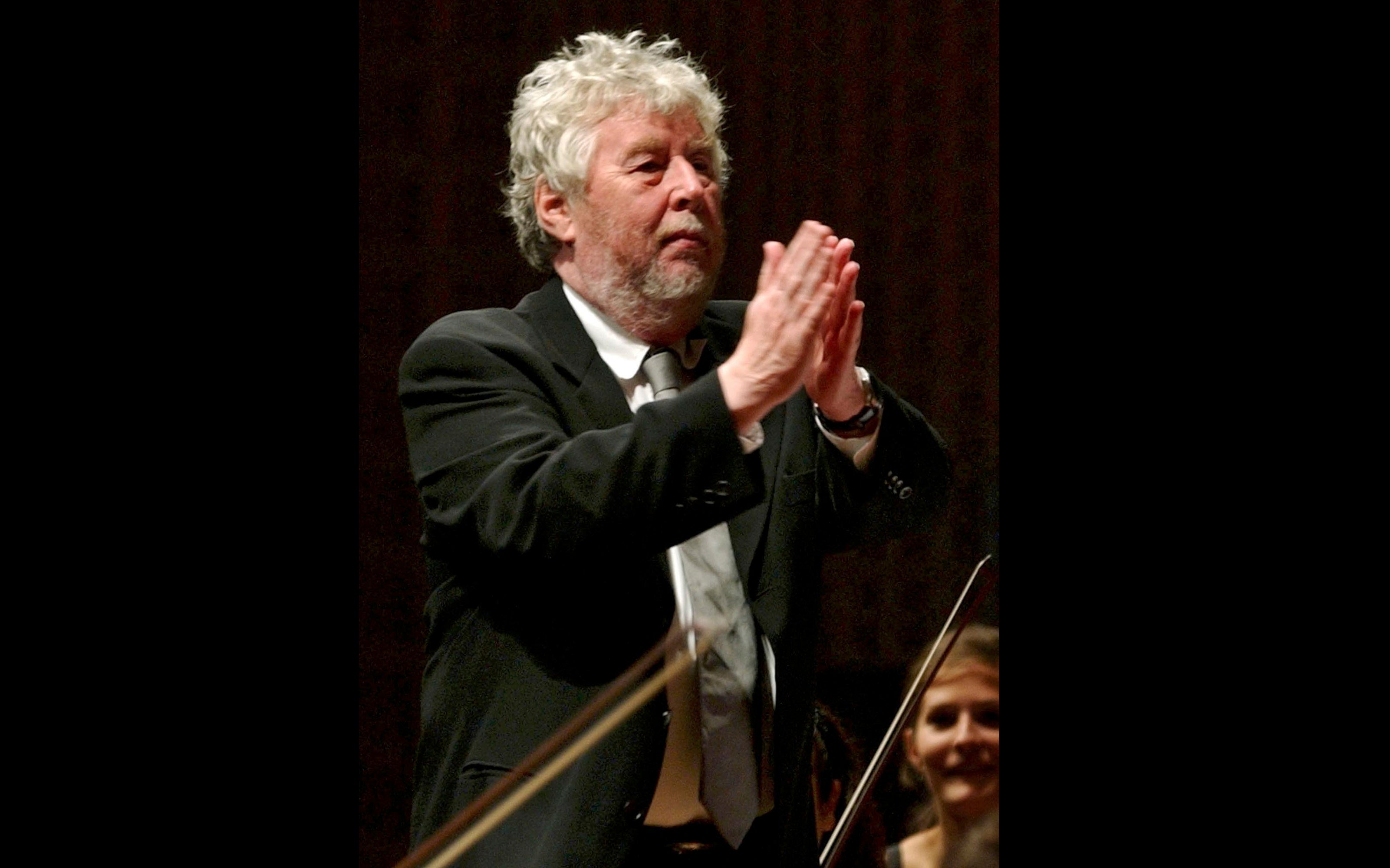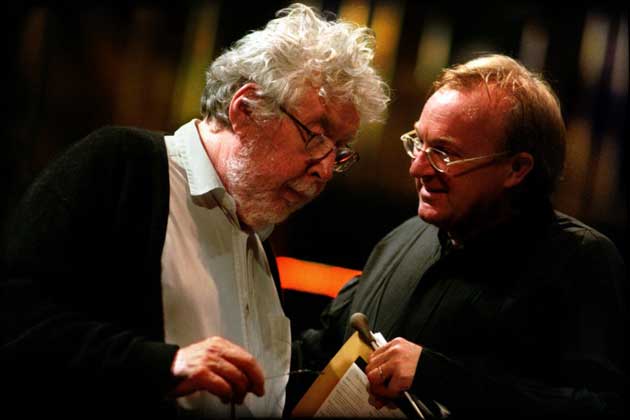Harrison Birtwistle death: Groundbreaking UK composer dies, aged 87
No cause of death has been revealed

Your support helps us to tell the story
From reproductive rights to climate change to Big Tech, The Independent is on the ground when the story is developing. Whether it's investigating the financials of Elon Musk's pro-Trump PAC or producing our latest documentary, 'The A Word', which shines a light on the American women fighting for reproductive rights, we know how important it is to parse out the facts from the messaging.
At such a critical moment in US history, we need reporters on the ground. Your donation allows us to keep sending journalists to speak to both sides of the story.
The Independent is trusted by Americans across the entire political spectrum. And unlike many other quality news outlets, we choose not to lock Americans out of our reporting and analysis with paywalls. We believe quality journalism should be available to everyone, paid for by those who can afford it.
Your support makes all the difference.Modern music virtuoso and one of Britain’s greatest contemporary composers Sir Harrison Birtwistle has died. He was 87.
Birtwistle’s publisher Boosey & Hawkes said in a statement that the composer died at his home in Mere, southwest England on Monday (18 April). No cause of death was revealed.
Birtwistle’s compositions, ranging from modest three-act chamber pieces to large-scale opera, were given prominent performances in venues including the Royal Opera House, the English National Opera, the Deutsche Staatsoper in Berlin, the BBC Proms in London and the Chicago Symphony Orchestra.
Short on conventional harmony and heavy on complex rhythms, Birtwistle’s music was often described as having an abrasive quality. In 1995, his piece “Panic” had a high-profile premiere on live television as part of the hugely popular “Last Night of the Proms” concert.
The BBC was inundated with complaints. “Was somebody strangling a cat?” one viewer asked.
It wasn’t only ordinary musical audiences who winced at his work. Benjamin Britten, among Britain’s greatest 20th-century composers, reportedly left at the intermission of the 1968 premiere of Birtwistle’s chamber opera “Punch and Judy” at Britten’s own Aldeburgh Festival.
“The question of accessibility,” Birtwistle, who remained unperturbed over how his work was received, once said, “is not my problem.”
“I have an idea. I express it as clearly as I can. Criticism is someone else’s problem.”
The composer’s work was also deeply divisive, with no critical consensus regarding his works.
In her review of Birtwistle’sThe Minotaur (2008) forThe Independent, critic Anna Picard wrote: “Long on ugliness, short of redemptive beauty, rich with the rough, pungent poetry of David Harsent’s libretto, Birtwistle’s score is as violent as its subject.”
However, Evening Standard’s Fiona Maddocks described it as “music of coruscating, storming beauty.”
Birtwistle, the subject of so much criticism, memorably dished it out to pop musicians in 2006 when he accepted an Ivor Novello award.
Enjoy unlimited access to 100 million ad-free songs and podcasts with Amazon Music
Sign up now for a 4 month free trial (3 months for non-Prime members)
Enjoy unlimited access to 100 million ad-free songs and podcasts with Amazon Music
Sign up now for a 4 month free trial (3 months for non-Prime members)
“Why is your music so f****** loud?” he said. “You must all be brain dead. Maybe you are. I didn’t know so many cliches existed until the last half-hour. Have fun. Goodbye.”

After news of Birtwistle’s death broke, fans and collaborators paid tribute to his musical legacy online.
The Royal Philharmonic Society tweeted that Birtwistle was “a true musical colossus” whose music “shook the earth.”
English National Opera’s music director Martyn Brabbins said credited Birtwistle for inspiring “generations of musicians” with his compositions.
Born in Accrington in northwest England on 15 July 1934, Birtwistle studied clarinet and composition at the Royal Manchester College of Music, alongide contemporaries such as Peter Maxwell Davies and the late pianist John Ogdon. In 1965, Birtwistle sold his clarinets to focus solely on composition.
Apart from The Minotaur, Birtwistle’s other significant works include The Mask of Orpheus staged by the English National Opera in 1986; Exody which the Chicago Symphony Orchestra premiered under Daniel Barenboim in 1998, and Gawain, which premiered in 1991 at the Royal Opera House.
In 1987, Birtwistle won the University of Louisville’s £115,368 ($150,000) Grawemeyer Award for Composition forThe Mask of Orpheus.
He was made a Chevalier de l’Ordre des Arts et des Lettres by France in 1986, was knighted by Queen Elizabeth II in 1988 and was elevated in 2001 to a Companion of Honour, a British distinction limited to 65 living people.
Birtwistle, whose wife Sheila died in 2012, is survived by their three sons.
Additional reporting on wires.